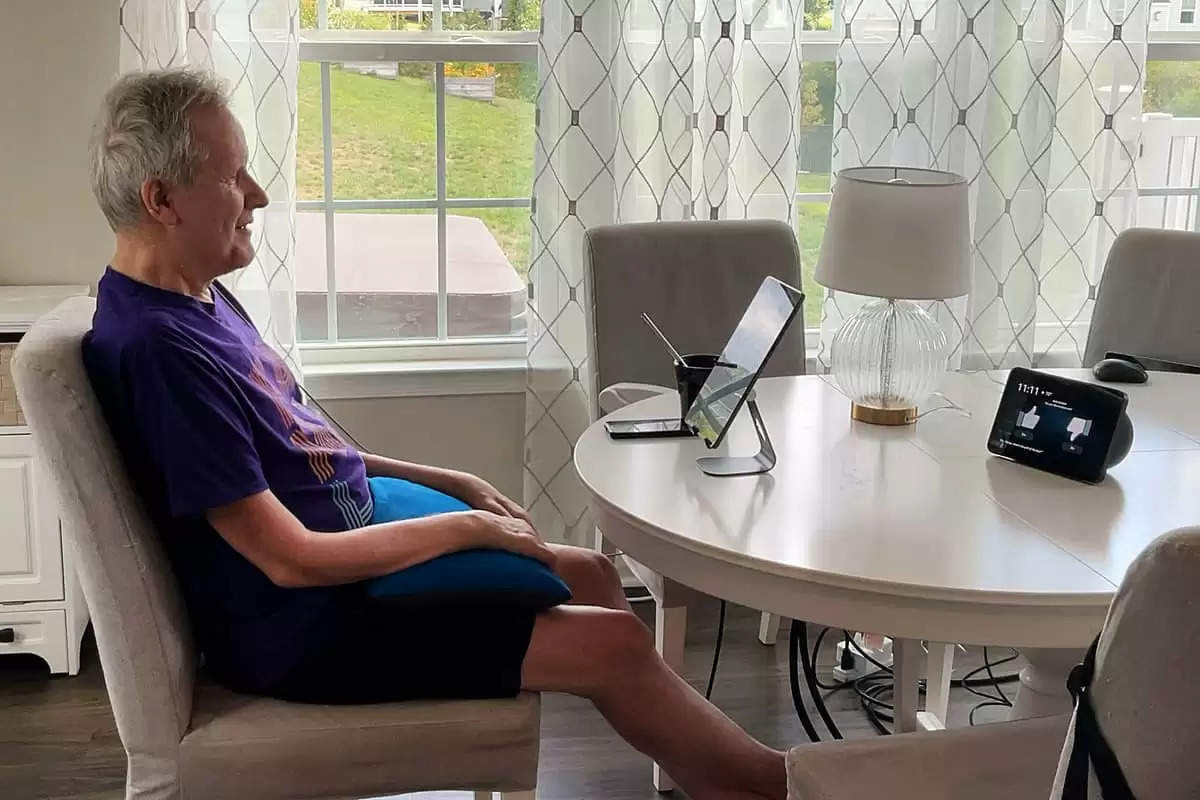Neurotech Breakthrough: Synchron's BCI Empowers ALS Patient with Smart Home Control

Synchron, a leading neurotech business, has made big steps forward with its brain-computer interface (BCI), which is a huge step forward for neurotechnology. In an inspiring case, a 64-year-old man with amyotrophic lateral sclerosis (ALS) has used Synchron's BCI to handle many smart home devices, such as lights, TV, and even online shopping, all without using his hands or calling out commands.
This important achievement is a turning point in the field of assistive technology. It shows how BCI systems can improve the quality of life for people who have serious mobility impairments. The ALS patient, who has had to deal with the disease's crippling effects, can now use technology in ways that were thought to be impossible before. By tapping icons on an Amazon Fire tablet, the patient can easily use Amazon's Alexa to handle voice-controlled devices, make video calls, play music, and improve the home environment.
For Synchron's BCI technology to work, a small implant must be placed in the brain through a slightly invasive surgery. This implant is made to record and send the user's motor intentions wirelessly to devices that are linked. The method lets people do things that they could only do by interacting physically before by decoding brain signals. This new way of doing things not only makes things easier to get to, but it also gives people who have been severely paralysed back their sense of independence.
It's impossible to overstate how important this development is. Being able to control their world on their own is life-changing for people with diseases like ALS that gradually take away their voluntary muscle control. Many of these people have been lonely and angry for a long time because they can't interact with the world around them. Synchron's BCI gives people who have lost their freedom a new way to get it back, so they can spend more quality time with their families and friends.
Assistive technology experts are calling this a huge step forward and saying it will change the game. Dr. Maryam Shahbazi, a top neuroprosthetics researcher, was very excited: "Being able to control smart home devices through direct brain communication is a huge step forward." It gives people who have trouble moving around a lot of new ways to improve their lives and give them back some control over their daily lives.
This new development also shows that neurotechnology is being added to more and more consumer electronics. This could lead to new ideas in smart houses and personalised health care in the future. As technology keeps getting better, BCI systems are quickly becoming more useful in more situations. What this means for people with ALS, spinal cord accidents, strokes, and other neurodegenerative diseases is very important.
As Synchron keeps improving its technology, the company plans to do more research to learn more about how well and safely its BCI system works in the long run. The goal is to finally give more patients access to this life-improving technology, which would help them be more independent and improve their quality of life overall.
Synchron aims to work with healthcare professionals and rehabilitation centres over the next few months to make it easier for people to use this cutting edge technology. The company is still doing research and development, and they hope that one day BCIs will be normal tools for treating people with severe mobility problems.
In conclusion, Synchron's latest success is both a big step forward in technology and a sign of hope for people who are severely paralysed. Synchron is not only changing lives by giving patients a brain-computer interface that lets them connect with their surroundings, but it is also changing what is possible for disabled people. As this technology keeps getting better, it could not only make people more independent, but it could also lead to new developments in neurotechnology and assistance devices.
--
